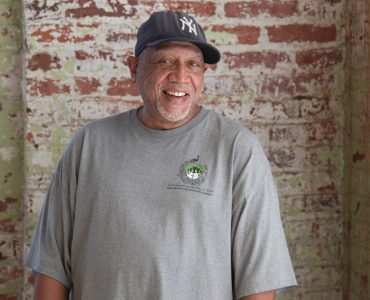Early in her career, Nadine Finigan-Carr, PhD, taught elementary school in West Baltimore, where she witnessed how education and health intertwined in students’ lives. Now she studies such ties, using her distinctive, multidisciplinary background at a time when racial inequities are in the public eye.
Finigan-Carr, a research associate professor at the University of Maryland School of Social Work, deputy director of the school’s Ruth Young Center of the Institute for Innovation and Implementation, and associate professor at the University of Maryland School of Medicine, is editor of Linking Health and Education for African American Students’ Success. For the 2017 book, she joined with contributors from several disciplines to explore the intersection of public health and education.
In her child-welfare work, Finigan-Carr gained insights on how standard practices in one discipline may undermine outcomes in another. For example, she describes a child placement in foster care to prevent abuse and neglect at home.
“I saw one child who in three years went to four different middle schools. If we can’t get a stable placement, consider the impact on academic achievement, on mental health, and on physical health,” she says. “Do we realize that in fixing one problem, we’ve caused a wealth of others?”
She wants researchers to abandon their tradition-bound silos to broadly engage in a search for solutions.
“The root cause can’t be addressed by one of us; it has to be addressed in a comprehensive way,” she says, meaning circumstances in which social injustice, educational inequity, and health disparities harm the well-being of African American youth.
Education is one of the most powerful determinants of good health; conversely, poor health imperils education. Furthermore, social determinants of health, such as housing and sanitation, can result in health inequalities. Think Flint, Mich., where children endured lead poisoning after the public water supply was rerouted to faulty pipes. Or consider Baltimore, where lead paint in hyper-segregated, disinvested neighborhoods has tainted homes and residents’ lives.
One chapter in her book explores how racism is a fundamental determinant of health for African American boys. Their early exposure to lead and other toxins diminishes brain development and causes decreased emotional inhibition. The researchers link that to higher rates of crime, violence, and mass incarceration.
In another chapter, “Community Violence, Adolescent Aggression, and Academic Achievement,” Finigan-Carr and a co-author point out that community violence pulls down performance, “having an effect on long-term outcomes such as grade-point average and proximal outcomes such as school engagement.” That study uses data from the 2004 National Longitudinal Study of Adolescent Health.
Finigan-Carr looks to share her multidisciplinary expertise, particularly in sexual reproductive health. She has conducted medical grand rounds, given health department talks, and served as board chair for a nonprofit organization, Healthy Teen Network.
Helping to mold future researchers and clinicians, she teaches methodology and an urban health course to students pursuing a Master of Public Health degree. “I see the overlaps,” she says, referring to issues that cross disciplines. Several of her students likely bring their own wider lens; they are enrolled in a dual-degree program that allows candidates to earn an MPH and a Master of Social Work, with Finigan-Carr as their faculty advisor.




